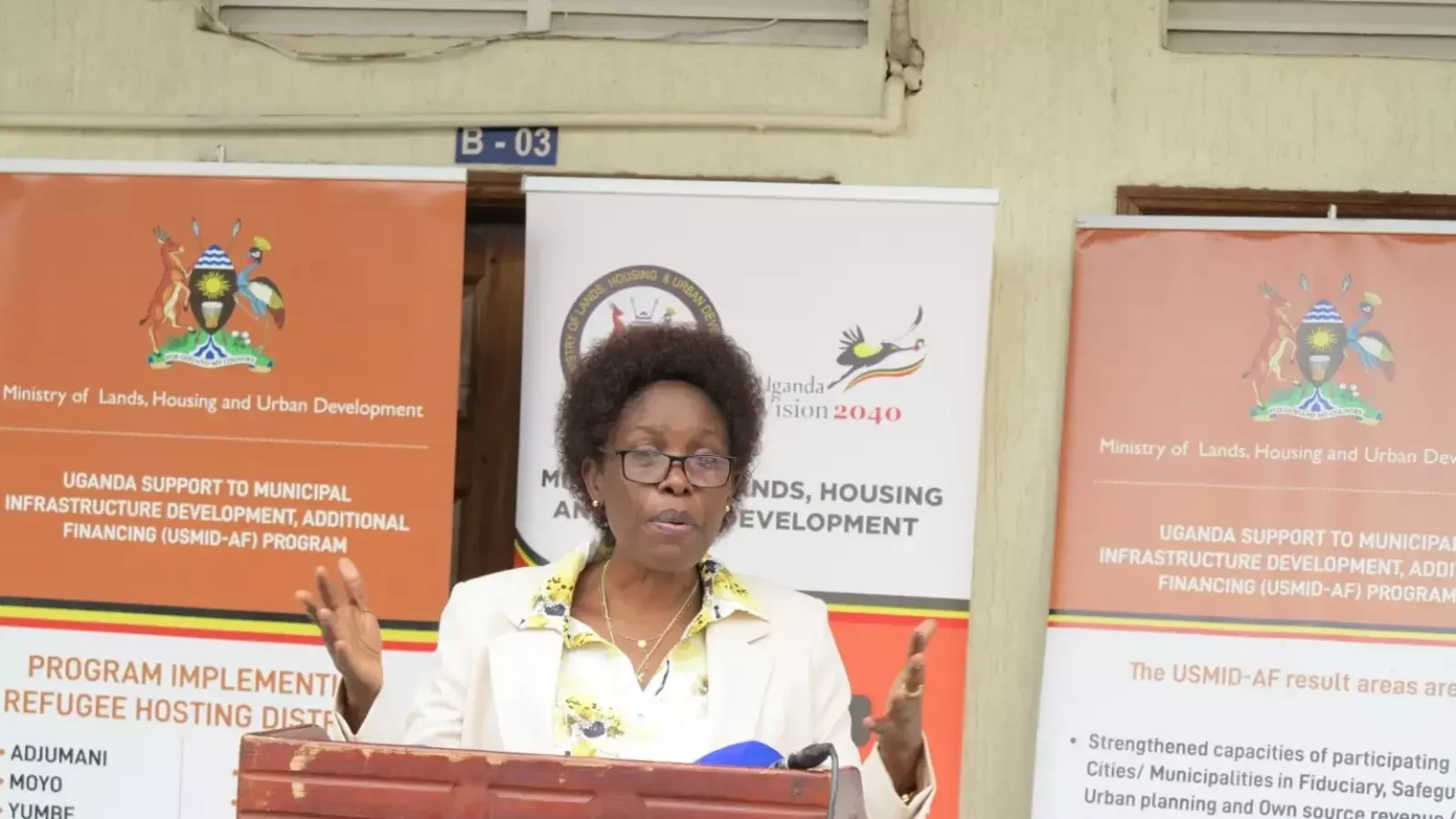Share
The proposed Uganda Cities and Municipalities Infrastructure Development (UCMID) program, an expansion of the present Uganda Support to Municipal Infrastructure Development (USMID) initiative, which will phase out in December this year, is expected to assist new municipalities.
The 15 municipalities will join the 33 cities and municipalities that have been registered in the USMID program since September 2013’s first and second phases.
Mityana, Iganga, Masindi, Rukungiri, Bushenyi-Ishaka, Kumi, Nebbi, Koboko, Kisoro, Kapchorwa, Ibanda, Njeru, Bugiri, Sheema, and Kotido are the municipalities.

The government intends to roll out the extension of this program between 2024 and 2029, Ms. Judith Nabakooba, the minister of lands, said, with the goal of ensuring that more municipalities are developed. She was presenting the USMID performance update to journalists at the ministry headquarters on Saturday, August 5.
“We are working with the World Bank to ensure that we get funding because everyone has seen how the USMID program has worked, and we must get measures of extending holistic infrastructure across the country,” she said.
They will require Shs2.7 trillion ($750 million) over the course of five years, according to Ms. Nabakooba.
According to Ms. Nabakooba, they would require Shs2.7 trillion ($750 million) over the next five years.
Once the government and the World Bank sign the financing agreements, “116 km of urban roads, 22 km of local economic development, and 57 km of primary drainage channels have been designed and are ready for implementation in the next phase,” the official said.
According to Ms. Nabakooba, between phase one and the conclusion of phase two of the USMID, $138 million was spent on 14 municipalities, some of which have since been given city status, and $360 million is being spent on 8 additional municipalities and 11 refugee hosting communities during phase two.
USMID is a World Bank-funded initiative that has been carried out in the nation for the past ten years by the lands ministry.
Nabakooba did point out that after the program has been approved, engineering drawings would be prepared for the 15 other municipalities that will participate.
The USMID program’s first phase began in 2013 and was meant to last for five years, which ended in 2018. But after securing extra financing in 2018, the program was extended for a further five years.
President Yoweri Museveni officially opened 78.4 km of urban roadways in 13 municipalities as part of the first phase of USMID between May and June 2019.
However, 51.8km of urban roads were finished and prepared for commissioning by June 30, 2023, under the current supplementary financing phase that is phasing down this year. By the end of the program in December 2023, an additional 87.1km will have been finished.
All of these city streets have been built completely, with all of the related fixtures, like solar streetlights, bike lanes, parking spaces, pathways for pedestrians, bus bays, street garbage cans, and drainage, among others.
The minister stated that there have been certain difficulties with the USMID initiative, such as delays in moving utilities during construction, where the utility companies overcharge and also cause delays.
“To ease this, my Ministry has prepared a paper on this issue and will be seeking a harmonised policy approach for location of utilities within the right of way as a mitigation measure and clear modalities for dealing with the issue of relocation,” Ms. Nabakooba added.
Ms. Nabakooba commented on the construction delays in Cluster 6, which comprises Mbarara City, Ntungamo, and Kabale Municipality.
“Clustering is a good policy for the civil works, but some of the contractors, like the one that took on cluster six, have had many difficulties, such as cash flows and capacity issues.”
She continued by saying that the local governments had learned their lesson and would make sure that the lessons were applied and that such situations during procurement never happened again.










